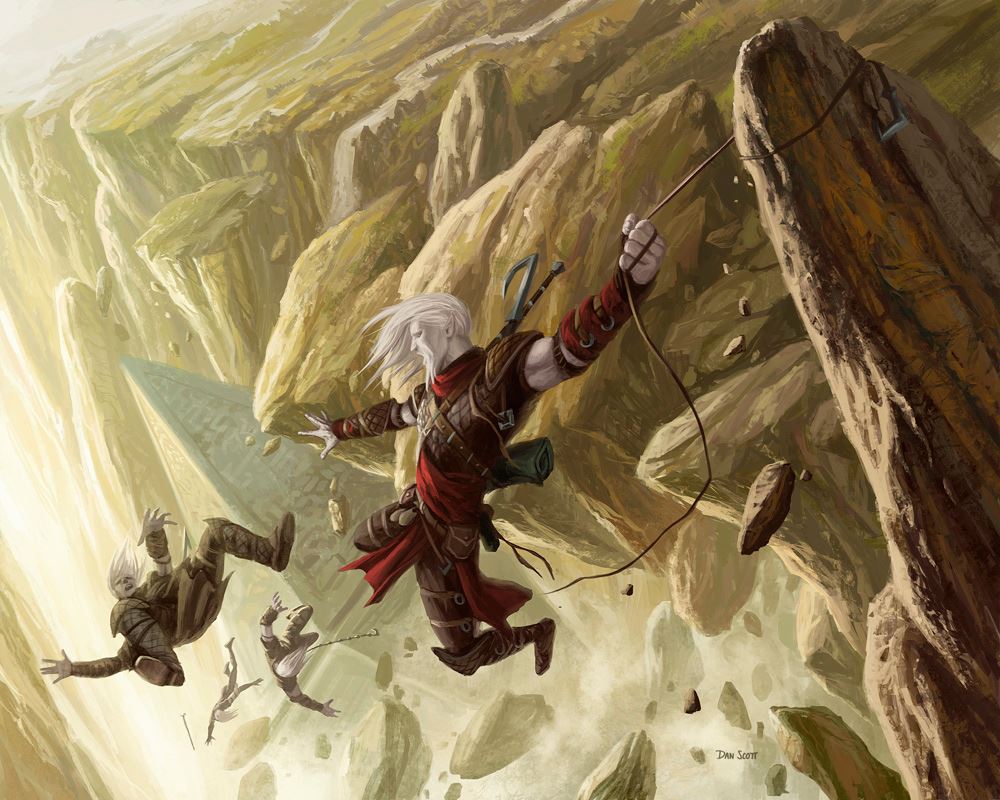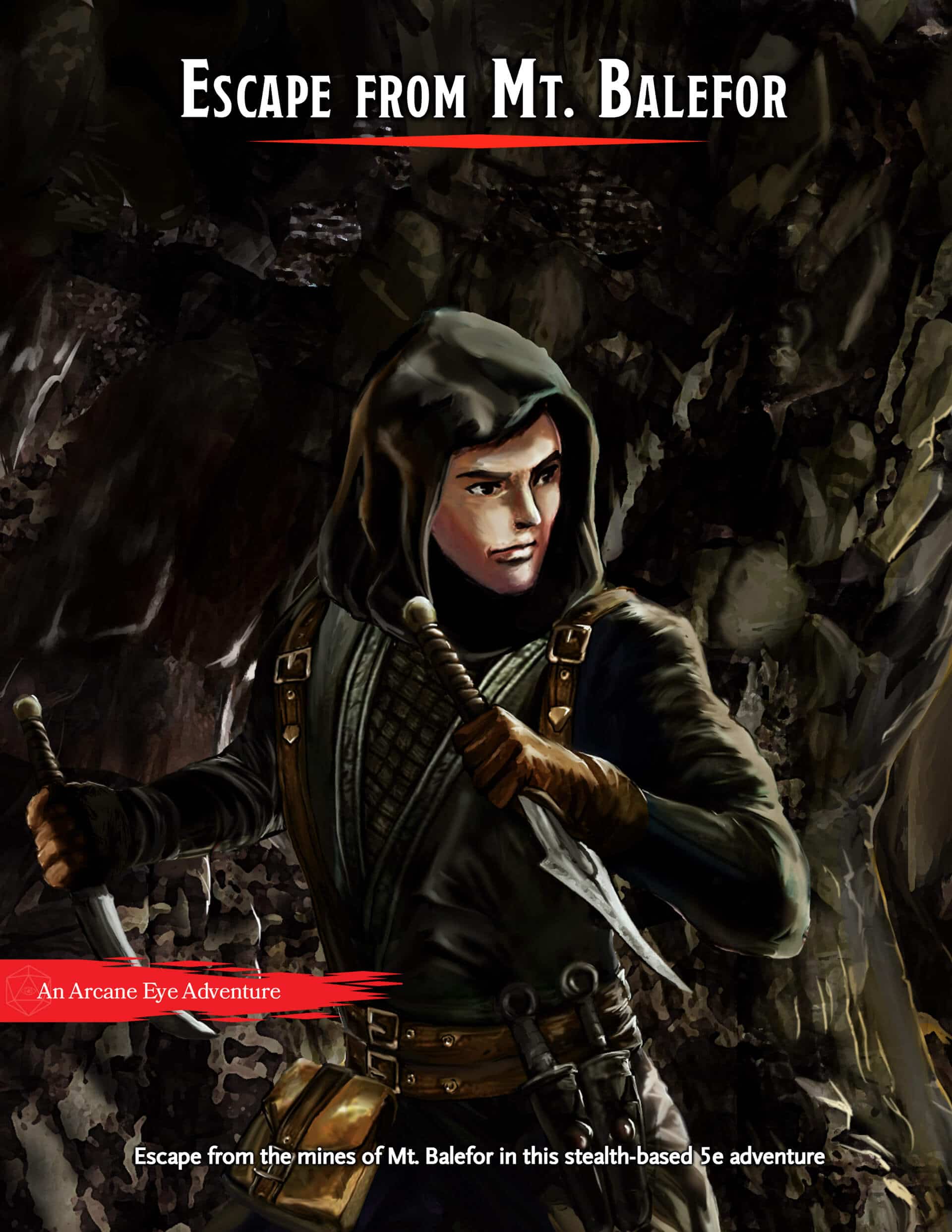Understanding the 5e Death Saves Rules
Published on February 19, 2023, Last modified on September 21st, 2023
What exactly are Death Saving Throws and how do they work? In this article, we’ll take a closer look at the 5e Death Saves rules to help you navigate this crucial aspect of the game.

Dan Scott - Wizards of the Coast - Sudden Demise
Table of Contents
What Are Death Saves in 5e?
Danger is a common occurrence in the world of Dungeons & Dragons. Whether it’s a dragon’s fiery breath, a deadly trap, or a fall from on-high, your character’s life is always on the line. When your character drops to 0 hit points, they are considered unconscious and begin making Death Saving Throws (‘Death Saves’ for short).
Death Saving Throws are a mechanic in D&D 5e that determine whether a character lives or dies when they have dropped to 0 hit points. When your character is reduced to 0 hit points, they are considered unconscious and must begin making Death Saving Throws. On each subsequent turn, your character will roll a d20 and add any modifiers or bonuses to the roll. If the roll is 10 or higher, your character succeeds in making a Death Saving Throw. If the roll is 9 or lower, your character fails the saving throw.
If your character fails three Death Saving Throws, they die. If your character succeeds on three Death Saving Throws, they stabilize and remain unconscious but are no longer in danger of dying. If your character rolls a natural 20 on a Death Saving Throw, they regain 1 hit point and become conscious.
When Do Death Saving Throws Reset?
Because you don’t go into negative hit points in D&D 5e, as soon as you receive healing, you’ll pop back conscious and reset your Death Saving Throws.
What’s Taken Into Account When Making Death Saving Throws?
Death saves are mechanically a saving throw. So, any ability that can affect saving throws, like bless or the Lucky feat can apply when making them. Unfortunately, no innate bonuses are added to Death Saving Throws. So, even those with a high Constitution modifier are stuck rolling a straight d20.
Do All Creatures Make Death Saves in 5e?
Most of the time, monsters and other NPCs die when they reach 0 hit points. For a particularly powerful monster or important NPC, DMs can make them fall unconscious, and roll death saves when they are reduced to 0 hit points.
How do Death Saves Work in Combat?
Death Saving Throws occur at the beginning of a character’s turn. If the character succeeds on their roll, nothing happens, and the round continues as normal. If the character fails their roll, they record one failure on their character sheet. If the character rolls a natural 1, they suffer two failures instead of one.
If a character takes damage while they are unconscious and at 0 hit points, they automatically gain one failure. If they take damage from a critical hit, they suffer two failures instead of one.
Also, it’s worth noting, that at any time if the damage they take exceeds their hit point total, they skip any remaining death saves and instantly die.
Instant Death
When you take damage and are reduced to 0 hit points, if there is still damage left over that equals your total hit points, you die immediately. No death saves.
Instant death can be the result of other effects, like being turned into a zombie upon death, dying due to the disintegrate or power word kill spells, or having your strength reach 0 with the shadow’s Strength Drain attack. In this case, players skip Death Saving Throws and will need revival magic to continue to play their character.
How Do You Heal Unconscious Characters?
If your character has stabilized but remains unconscious, will regain 1 hit point after 1 hour. If you don’t have this time, you can use a spell, healing potion, or a healer’s kit and the Healer feat.
Tips for Handling Death Saving Throws
If a party member is at 0 hit points, it’s crucial to try and stabilize them as soon as possible. This can be done using a healing spell or potion, or even a DC 10 Medicine check.
Healing word is one of the best options for reviving downed teammates. It’s a ranged option, can be performed as a bonus action, and only costs a 1st-level spell slot. The only downside with healing word is that the healing is only 1d4 + your spellcasting modifier, which leaves your teammate at risk of getting dropped again next round.
Death Is Not The End, But This Is
Death Saving Throws are an unfortunate but crucial aspect of D&D 5e. Understanding the rules of Death Saves and how they work in combat can mean the difference between life and death for your character. Hopefully, now that you’ve learned how dangerous getting into Death Saving Throws is, you’ll do your best to avoid them. But, adventuring is a dangerous profession, so good luck with that.
